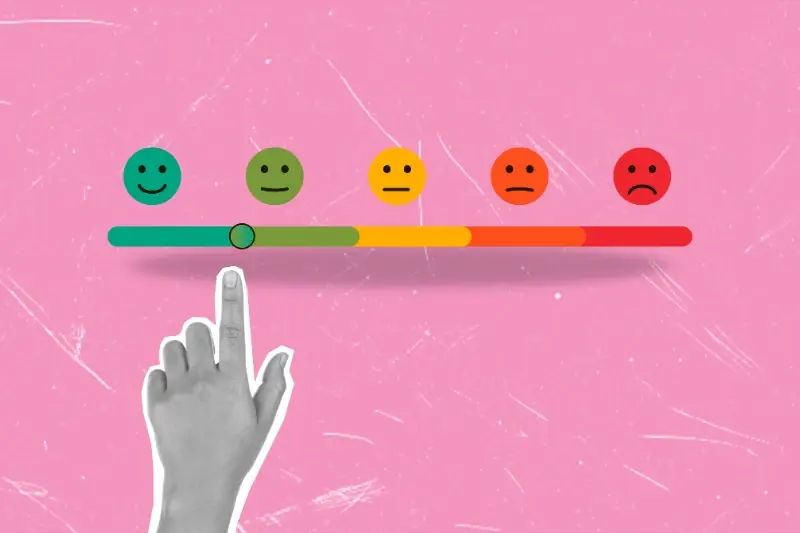Why Your App Needs Real Users (not Just Your Mum's Opinion)
Here's the uncomfortable truth about mobile app development: most apps fail because they're built for people who don't actually exist. You know the ones I'm talking about—those imaginary users who think exactly like you do and want exactly what you want. I see this all the time when working with clients who've spent months perfecting their app based on feedback from mates down the pub or relatives at Sunday dinner.
The problem isn't that family and friends don't care about your success. They do! But their opinions are about as useful as a chocolate teapot when it comes to understanding what real users actually need. Your mum will tell you your app is brilliant even if it crashes every five minutes. Your best friend will nod along with your features list even if they'd never use half of them in real life.
Real users don't care about your feelings—they care about solving their problems quickly and easily
That's why proper UX research with genuine users is so important for mobile app success. Real feedback from real people will tell you things that might sting a bit, but will save you thousands of pounds and months of development time. Getting honest opinions from your actual target audience isn't just nice to have—it's the difference between building something people actually want and building something that looks good in your portfolio but nobody downloads.
The Mum Test Problem
I've worked on hundreds of app projects over the years, and there's one conversation that happens almost every single time. A client will proudly tell me how their mum, partner, or best mate thinks their app idea is brilliant. They'll quote feedback like "This is amazing, I'd definitely use this!" or "You're going to make millions!" And whilst I appreciate the enthusiasm, I have to break some difficult news—this feedback is practically worthless.
The problem isn't that your mum is lying to you (well, not exactly). It's that she's biased. She loves you, wants you to succeed, and probably doesn't want to hurt your feelings by telling you your app idea needs work. Your friends are the same; they're naturally inclined to be supportive rather than brutally honest about potential flaws.
Here's what typically happens when you rely on feedback from people close to you:
- They tell you what they think you want to hear
- They don't represent your actual target market
- They won't use the app in real-world conditions
- They focus on being encouraging rather than critical
- They might not even be in your target demographic
The result? You end up building an app based on polite feedback rather than genuine market demand. That's a recipe for disappointment—and a very expensive one at that.
Why Friends and Family Feedback Falls Short
Your sister says the app is "brilliant" and your dad thinks it's "the next big thing"—but here's the problem: they're not actually going to use it. Friends and family feedback might feel good to hear, but it's about as useful as a chocolate teapot when it comes to building a successful mobile app.
The people closest to you suffer from what I call "polite blindness." They don't want to hurt your feelings, so they'll tell you what they think you want to hear rather than what you need to hear. Your mum isn't going to say your fitness app is confusing when she's never downloaded a fitness app in her life.
The Real Problems with Inner Circle Testing
Beyond the politeness factor, there's a deeper issue with friends and family feedback. They already know what your app is supposed to do because you've explained it to them—probably several times! This means they're not experiencing your app the way a real user would: confused, impatient, and ready to delete it if it doesn't work immediately.
- They'll forgive poor UX because they love you
- They already understand your app's purpose
- They're not your target audience
- They won't give you the brutal honesty you need
Ask yourself: would your feedback sources actually download and pay for your app if they found it randomly in the app store? If the answer is no, their opinion won't help you build something people actually want to use.
What Real Users Actually Tell You
Real users don't care about your feelings—and that's exactly what makes their feedback so valuable. When actual customers test your app, they'll tell you things that would make your mum gasp and your best friend change the subject. They'll point out confusing buttons, complain about slow loading times, and abandon your app mid-task without a second thought.
The beauty of real user feedback is its brutal honesty. A genuine user won't pretend to understand a feature that's poorly explained; they'll just give up and move on to a competitor's app. They won't make excuses for crashes or forgive terrible user experience because they know you personally.
What Real Users Actually Focus On
- How quickly they can complete their main task
- Whether the app solves their actual problem
- If the interface makes sense without explanation
- How the app performs under real-world conditions
- Whether they'd recommend it to others
Real users also provide context you can't get anywhere else. They'll use your app on different devices, in various environments, and with different levels of technical knowledge. This diversity reveals issues that your inner circle—who probably all have similar backgrounds and devices—would never encounter.
Most importantly, real users vote with their actions, not their words. Their behaviour patterns show you what actually matters, not what people think should matter.
How to Find Your Real Users
Right, so you've accepted that your mum's glowing review isn't going to cut it—now what? Finding real users for your mobile app isn't as tricky as you might think, but it does require stepping outside your comfort zone a bit. The key is to go where your potential users already hang out online.
Social media groups are goldmines for this kind of thing. Facebook groups, Reddit communities, LinkedIn groups—wherever people gather to discuss topics related to your app's purpose. If you're building a fitness app, join running groups or gym communities. Building something for parents? There are thousands of parenting groups out there. Don't just lurk though; contribute to conversations and build relationships first.
Online Communities and Forums
Forums specific to your industry can be brilliant for finding engaged users who actually care about solving the problem your app addresses. These people are already invested in the topic, which means their feedback will be more thoughtful and honest.
The best user feedback comes from people who have a real problem that needs solving, not from people who want to be nice to you.
User research platforms like UserTesting or Maze can connect you with screened participants, but don't overlook simpler approaches. Sometimes posting in the right Facebook group or reaching out to connections on Twitter can yield fantastic results. The goal is finding people who would genuinely use your app—not people who want to help you out.
Getting Honest Feedback from Real People
Right, so you've found your real users—now comes the tricky bit: getting them to tell you what they actually think. Most people are naturally polite; they don't want to hurt your feelings or seem difficult. This means you need to be clever about how you ask for feedback.
Start with open-ended questions rather than leading ones. Don't ask "Do you like our new feature?" Instead, try "What did you think when you first saw this screen?" or "How did that make you feel?" These questions give people permission to be honest without feeling like they're being mean.
Creating a Safe Space for Criticism
People need to feel safe to criticise your app. I always tell users that negative feedback is actually more valuable than positive feedback—it helps us fix problems before launch. You can also use anonymous surveys or feedback forms; people are much more honest when they know their name won't be attached to harsh comments.
Here are some techniques that work well for getting honest responses:
- Use neutral language when asking questions
- Offer anonymous feedback options
- Ask about specific tasks rather than general opinions
- Watch what people do, not just what they say
- Thank people for negative feedback publicly
The key is making users feel like they're helping you improve, not judging your work. When done properly, psychology-first app development incorporates these feedback patterns into the design process from the very beginning.
Common Mistakes When Gathering User Feedback
I've watched countless mobile app projects stumble at the feedback stage—not because they didn't collect user opinions, but because they did it wrong. The most common mistake I see is asking leading questions. When you ask "Don't you think this button looks great?" you're basically fishing for compliments rather than honest feedback. Real UX research demands neutral questions that don't push users towards a particular answer.
Another big error is testing with the wrong people at the wrong time. I've seen teams show early prototypes to random users who have no interest in their app's purpose. That's like asking a vegetarian to review your new steakhouse menu! You need people who actually face the problem your app solves.
Then there's the timing issue. Some developers wait until their app is nearly finished before seeking feedback—by then, making changes becomes expensive and painful. Others start too early with barely functional prototypes that confuse users more than help them.
Perhaps the biggest mistake is not following up. Getting feedback is just the start; you need to understand what users really mean behind their words. When someone says "it's confusing," dig deeper to find out exactly what confused them and why. This is particularly important when you need to present your app project to executives who expect clear user validation.
Always test your feedback questions on a colleague first. If they sound like you're fishing for compliments, rewrite them to be more neutral.
Conclusion
Look, I'll be straight with you—getting real user feedback isn't always easy. Your mum will always tell you your app is brilliant (bless her), but she's not going to help you build something people actually want to use. Real users, on the other hand, will tell you things that might sting a bit but will save you from launching something that nobody cares about.
After working with countless clients over the years, I've seen what happens when teams skip this step. They spend months building features nobody asked for, they miss obvious problems that would've been spotted in five minutes of real user testing, and they end up with apps that look pretty but don't solve real problems.
The good news? Finding real users doesn't have to be complicated or expensive. Start small—even five genuine users can give you insights that'll completely change your app's direction. Use the methods we've covered, avoid the common mistakes, and most importantly, listen to what people are actually telling you rather than what you want to hear.
Your app deserves to succeed, and real user feedback is what'll get you there. Trust me, it's worth the effort.
Share this
Subscribe To Our Blog
You May Also Like
These Related Stories

The Ultimate Guide to User Testing Your Mobile App (before It's Too Late)

Why User Feedback Is Your App's Best Friend (and How to Make the Most of It)





